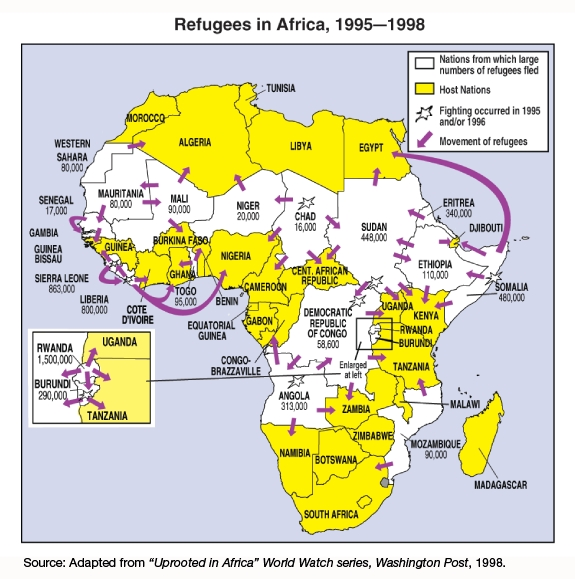-- Exhibit --
The refugee issue is a worldwide problem.As of 1999, the United Nations High Commissioner for Refugees (UNHCR) reported that there were an estimated 22.3 million refugees around the world. Africa, with 5.2 million refugees in 1995 alone, has been particularly disrupted by the movements of refugees across many borders.
A variety of causes may force people to become refugees, including desertification, drought, famine, disease, warfare, and political persecution.In the 1990s the most frequent causes of refugee migration were civil wars and ethnic clashes.
Refugees seek international protection and/or assistance and are unable to return home because they fear persecution and violence.While some refugees rely on friends and family for assistance or on their own economic resources, most refugees reside in camps where only about 11 cents a day per refugee is available as aid.The "host" countries, often struggling economically themselves, have little to offer refugees.While most refugees maintain the hope of returning to their home countries, some permanently settle in a host country.
 -- Exhibit --
-- Exhibit --

According to the map, where in Africa did the greatest amount of refugee movement occur between 1995 and 1998?
- in the southern region
- along the Mediterranean coast
- in the central and eastern regions
- between Africa and Europe
- in the region west of Mali